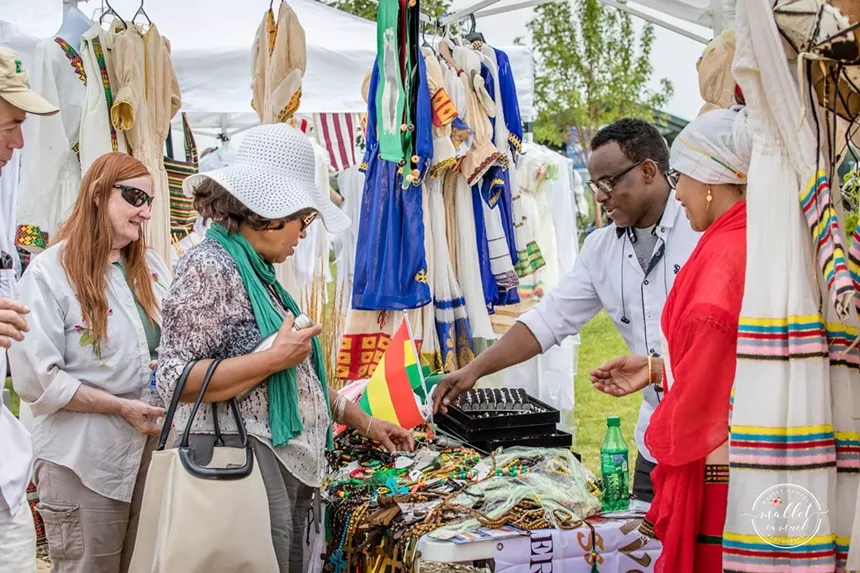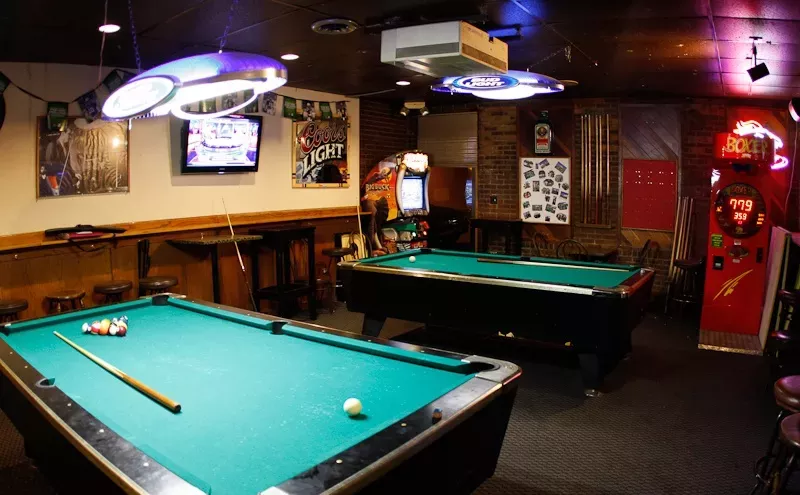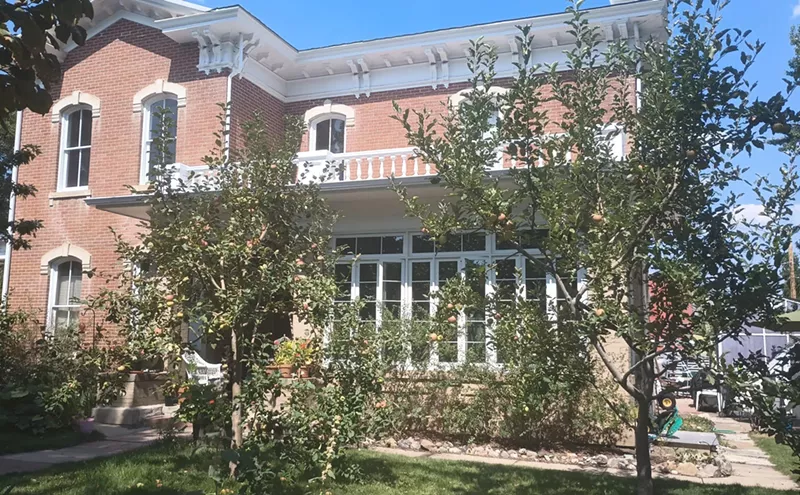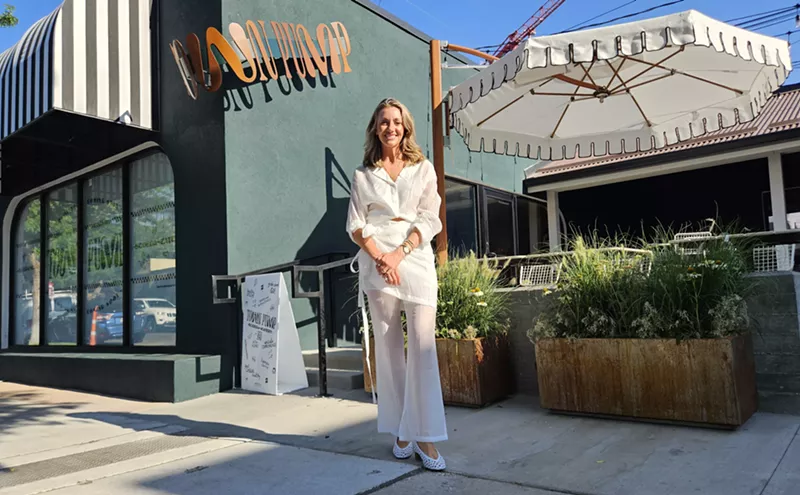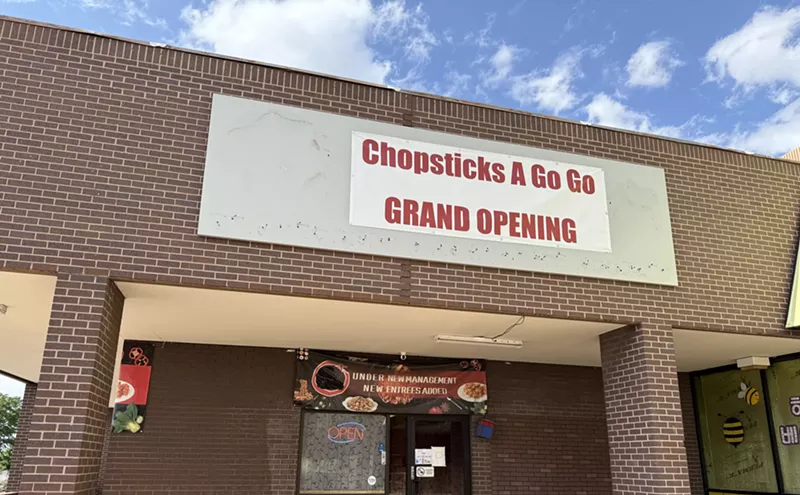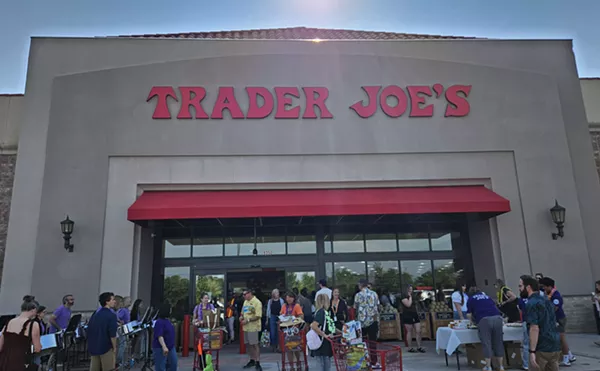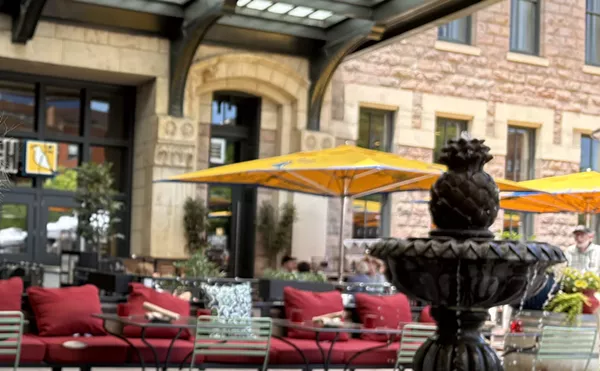After a three-year hiatus because of COVID and other factors, Asfaw anticipates that this will be the largest iteration since the festival's inception in 2013, with thousands of attendees expected. “People have missed this festival," he says. "This is not your run-of-the-mill festival. This is for folks who want to learn about a special culture from far away. But it is, I think, a culture of Colorado as well, because we are part of Colorado.”
Asfaw notes that Ethiopians make up the state’s second-largest immigrant community. It’s also one of the fastest-growing communities in Colorado, with roughly 30,000 residents in the Denver metro region, some of which are third-generation citizens.
“These families are a success story,” says festival co-founder Girum Alemayehu. “They recognize the value that America gave us — the hope, the opportunities. We have to pay back that opportunity [and] show that we are grateful to be here. So we are generously presenting our culture.”
“We want to share an opportunity to learn about the food, the music, the culture, the dance, the traditional attire, the stories,” says Asfaw. He mentions that several local Ethiopian restaurants will be participating, serving authentic dishes with bold flavors.
“The average Ethiopian dish has seventeen spices in it, and [the] majority are slow-cooked. They take hours to make, so it's made with love," says Asfaw, who describe Ethiopian cuisine as “finger food” because rather than silverware, injera, a spongy, gluten-free flatbread made from teff flour, is used to scoop up spicy meats, stews and curries. “One thing that Ethiopian food is very known for is vegetarian options," Asfaw adds. "For people that are vegan or vegetarian, you're going to be in heaven.”
Coffee is another highlight of the event. “It's not like a Starbucks coffee — you grab a cup and go,” jokes Alemayehu. “We roast it there. We show how to make it, and we show the ceremony of coffee [and] why coffee is important in Ethiopian culture.”
There will be Ethiopian goods available at the festival's market, including art and traditional apparel, and business owners of various African, Caribbean and American heritage will be participating, too. The same cultural variety is seen in the festival’s music lineup. Specifically, Asfaw mentions acts by the Denver Municipal Band and a reggae band from Jamaica and the Virgin Islands. Last year, the festival hosted a group of drummers from Zimbabwe. The full performance schedule will be published on the festival’s website.
The event will also highlight recent graduates in the Ethiopian community, as well as a few of its “model citizens — people that broke barriers and accomplished something great in Denver,” says Asfaw, who notes that the city’s Ethiopian population has nearly a 100 percent high school graduation rate and an obvious entrepreneurial spirit.
Alemayehu is one of many business owners within the community; currently, there are more than 22 Ethiopian restaurants in the metro area.
“The first Ethiopian immigrants started arriving in the mid-’70s, during the revolution when the monarchy was overthrown in Ethiopia,” explains Asfaw. “In the mid-’80s, there was a huge crisis in Ethiopia, the Great Famine. Over a million people died, and again, there was a big influx of refugees. Colorado was one of the amazing states that opened its doors for Ethiopians.”
Asfew adds that in the ’90s, Ethiopians were one of the biggest recipients of the Diversity Visa. “The Diversity Visa is something that's given to immigrants that are underrepresented in the U.S.." he explains. "It has pretty stringent qualifications, education [and] talent-wise, but Ethiopia has benefited from that.”
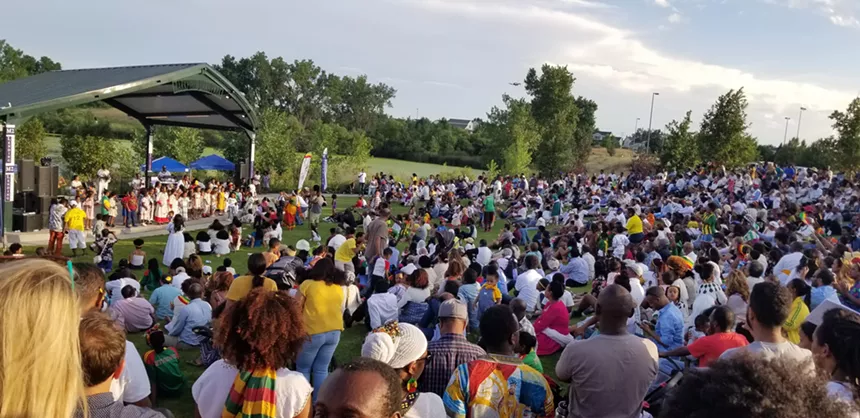
There will be a variety of performances at the Taste of Ethiopia Festival.
Taste of Ethiopia Festival
Alemayehu adds that prior to the 1974 revolution, it was common for Ethiopians to come to the United States for schooling, but to quickly return to Ethiopia post-graduation. “We are very home-oriented people. But that communist revolution [was] dangerous to the country, to the culture, to the people in Ethiopia. We [were] fearful of that intervention, and so we found home — a safe haven — here in the United States.”
“It's been a very successful story of an immigrant community that came into the state and really became part of the fabric," Asfaw adds.
"The festival is one way of expressing the culture and our food, our music, our heritage," he concludes. “Our wish is for Taste of Ethiopia to be a cultural [event in] Colorado for decades into the future. That's our hope, and so far, we have not been disappointed. Denver has embraced us, embraced the Taste of Ethiopia, and for the people that have not experienced it before — if you're ready for a delightful day of cultural immersion, we invite you to stop by.”




